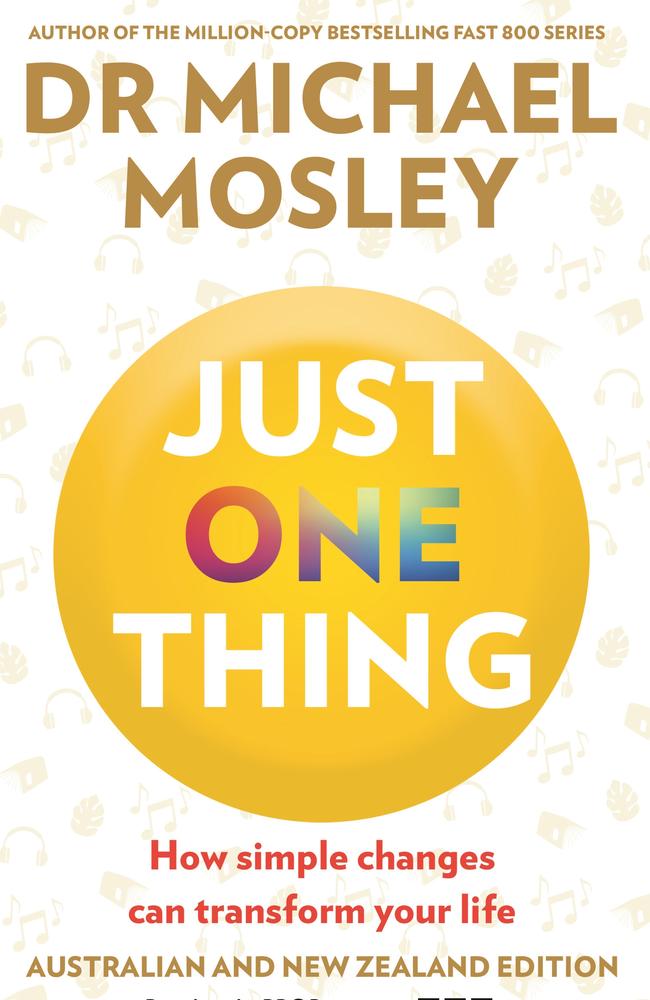‘One or two simple things a day’: Michael Mosley reveals secret to making new habits
Health guru Dr Michael Mosley reveals how to transform your mental and physical health by making one small change at a time.
QWeekend
Don't miss out on the headlines from QWeekend. Followed categories will be added to My News.
It’s 9am on a Tuesday morning and Dr Michael Mosley is primed for his day ahead. Already, he has been on a walk, completed a session of squats and push-ups, stood under a cold shower singing his best Elvis Presley rendition of Hound Dog, eaten an omelette with a gut microbiome booster of purple sauerkraut on the side and, now, talking with Qweekend by phone from his Buckinghamshire home in the UK, is happily sipping a coffee.
Individually, on this morning, these are all small things he has accomplished. And that is the point. These things are small and achievable and they just might be the key to transforming your mental and physical health.
Mosley, 65, a medical doctor, turned science journalist, documentary maker and best-selling author, is well known to most Australians for championing intermittent fasting and pioneering the 5:2 eating plan that restricts calorie intake two days a week.
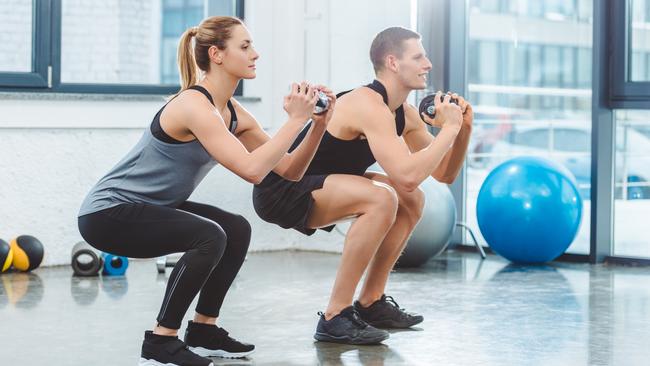
In 2012, Mosley discovered he had type-2 diabetes and a blocked coronary artery and has since presented numerous investigative TV health programs including Eat, Fast and Live Longer, Trust Me I’m a Doctor and Australia’s Health Revolution.
His best-selling books include The Fast Diet, The 8-Week Blood Sugar Diet, The Clever Guts Diet, The Fast 800, and Fast Asleep. On a personal health level, today he now has no sign of diabetes and his blocked artery has cleared.
His latest venture, beginning as a podcast series for BBC Podcasts during 2021 Covid lockdown, is something of a summary of all he has learnt.
Titled Just One Thing, the 15-minute podcast episodes (that are ongoing) introduce surprisingly simple tips to improve your health as varied as standing on one leg or eating beetroot. Mosley has now written a book with the same title.
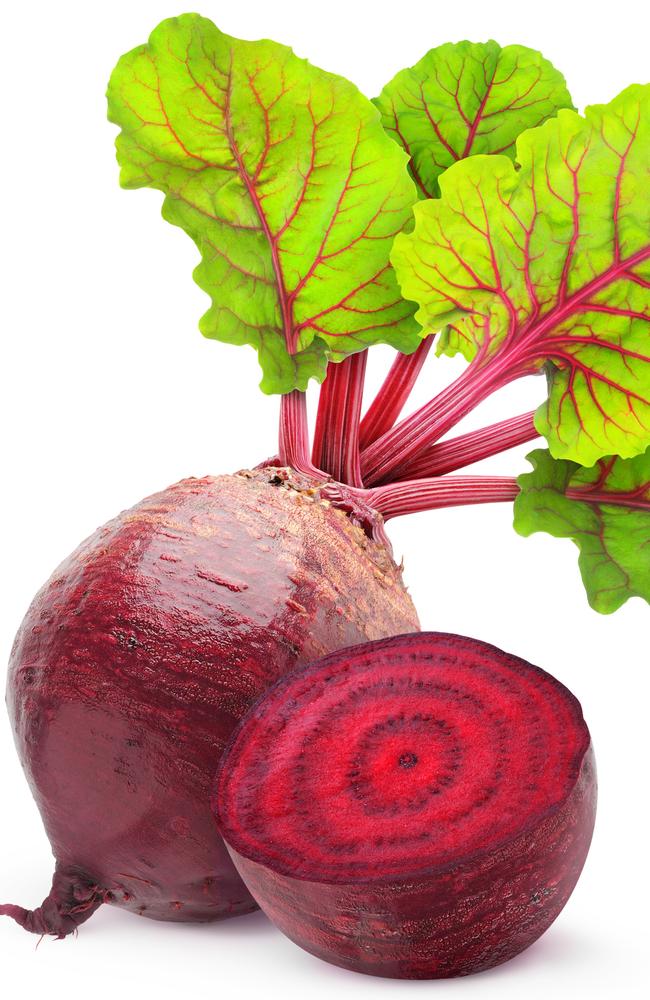
“The podcast series has been enormously popular,’’ Mosley says.
“The problem with a lot of habits is that it’s hard to ingrain them. There is something really compelling about the idea of ‘just one thing’. The appeal is its simplicity. It just sounds achievable.”
The book identifies and explains the science behind 30 simple things that Mosley suggests fanning out over a typical day from early morning to evening. But there are no hard and fast rules. The idea is to fit one or two or more into your life and perhaps build up over time.
For example, Mosley suggests the early morning is a good time for “intelligent’’ or resistance exercises comprising his favourite push ups (he does up to 40) and squats (at least 30).
Squats, he says, are “probably the best single exercise you can do’’ as they work the biggest muscles in your body but, incredibly, are also good for your brain.
He says research has found the action of moving your body up and down against resistance seems to be particularly effective at stimulating blood flow to the brain and a hormone called BDNF (brain derived neurotrophic factor) that encourages the growth of new brain cells and connections. It’s what Mosley calls “fertiliser’’ for the brain.
And then there are “eccentric’’ exercises. Not peculiar or bizarre, rather slow, lengthening muscle contractions achieved from exercise such as running downhill, walking briskly down stairs or slowly sitting into a chair.
Having a cold shower (after your nice normal hot one) is beneficial for combating stress and boosting your immune system. You can also sing loudly while you do it, another little thing to try. Other “things’’ include: early-morning walks; meditation; drinking water and coffee; eating oily fish such as mackerel, salmon, sardines, herring or anchovies at least twice a week; eating beetroot two to three times a week; and “bacteria’’ (aforementioned sauerkraut); having an early dinner and late breakfast to extend an overnight fast; standing on one leg to improve balance and reduce risk of injury by falls; eating (dark) chocolate; and learning a new skill.
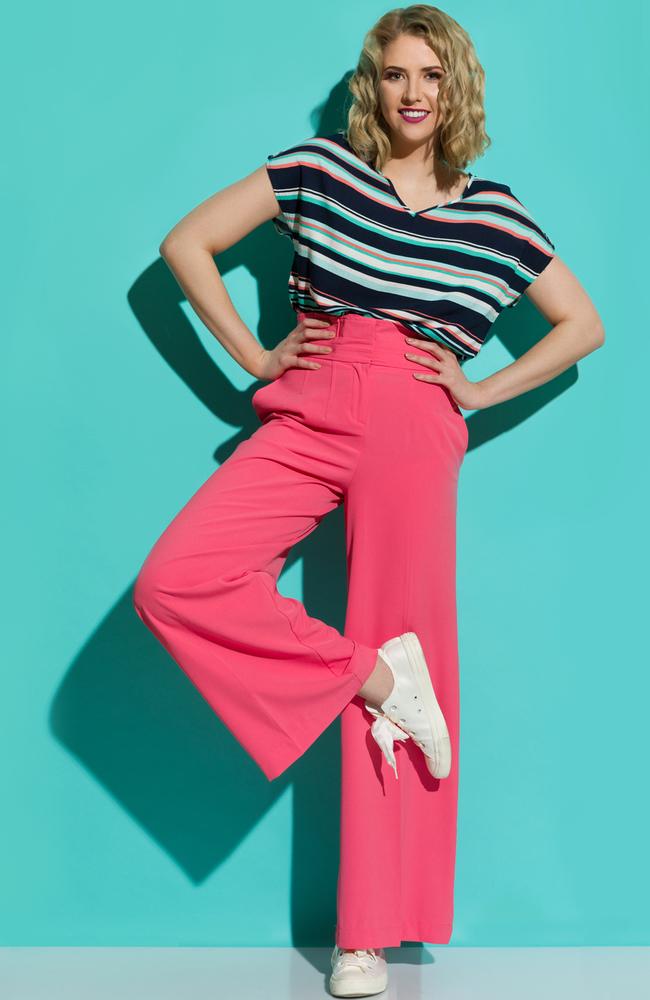
Mosley says, of the 30 “things”, he does about three quarters of them regularly.
“I suggest doing one or two of them, not all of them all at once,’’ he says.
“Try to link it to something you are already doing. We know anchoring one activity to another is very effective. For example, I have to get out of bed every morning so I do my press ups and squats first thing in the morning when I get out of bed. It links the activity with something you are already doing. Or drinking a large glass of water with every meal. Establishing a habit is largely about regularity.
“Even quite small changes like that can have quite a big effect on your mental and physical wellbeing. And once you get into a positive cycle, then these things build on each other. Maybe then you’ll want to take on other things as well. It could be eating oily fish twice a week. It could be singing in the shower.’’
Mosley is a regular visitor to Australia who has “lots of cousins scattered around Australia” as well as several friends and fellow UK medical school graduates who now call Australia home.
He will next visit in February and March to film a series on sleep for SBS that examines new approaches to helping people sleep.
It’s a topic close to his heart with personal experience as a chronic insomniac who now falls asleep easily but regularly wakes in the early hours of the morning. (“My brain has a tendency to be a bit hyperactive at 3am,” he says.)
He will also embark on a national “talking tour” of Australia and catch up with his son Jack, 30, who is a doctor living in Melbourne.
In other projects, Mosley has recently completed a series for the BBC titled How to Live to 101, examining the science of ageing and filmed in locations including Japan, China and the United States.
Mosley is married to his wife of 35 years, Dr Clare Bailey, 61, a GP and best-selling recipe book writer. Bailey has a new cookbook titled The Fast 800 Keto Recipe Book, (as a companion to Mosley’s book The Fast 800 Keto) that will be released in Australia in January.
The couple, who met in medical school 42 years ago, have son Jack and three other children – Alex, 32, Daniel, 28, both management consultants in London, and Kate, 23, a lawyer in Canada.
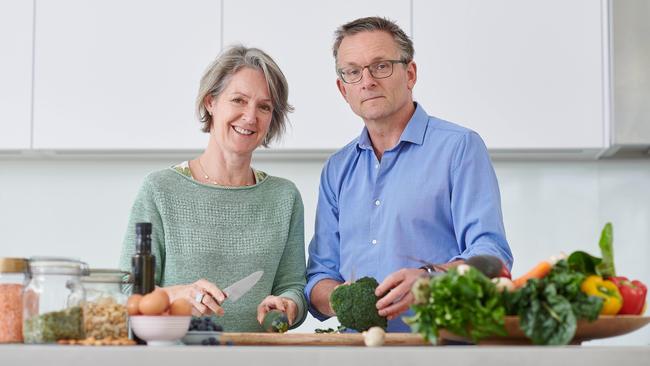
Mosley has sold multimillion copies of his books and his trusted recommendations and health advice have been known to affect retail sales.
“When the (Just One Thing) podcast goes out, depending what area I’ve covered, people may want to come up to me and talk about beetroots or dark chocolate or fermented foods,” he says.
“There was apparently a massive rush on the sale of beetroots when that podcast came out.’’
He is also regularly stopped by people telling him about their success in losing weight or reversing their diabetes.
On his last visit to Australia, at Noosa on the Sunshine Coast, a bus driver who was a former insulin-dependent diabetic, told Mosley how he had lost 25kg thanks to intermittent fasting (The Fast 800) approach.
“It really is life affirming to hear that and it makes you think what you are doing is worthwhile,” Mosley says.
“I also feel so pleased for them that they have managed to do something about their health. It gives me a very warm glow.”
Part of Mosley’s relatable appeal comes from his admission he is not above sometimes slipping up with food choices, confessing he still finds it hard to resist milk chocolate. “My poison is very much milky chocolate, chocolate biscuits … anything with the word chocolate in it,” he says.
“But I forgive myself fairly rapidly. The worst thing you can do is beat yourself up. You have to accept they are going to happen and when they do, you go, ‘Hey ho, right, moving on’, rather than using it as an excuse to give up entirely.”
30 small things that can make a big difference
■ Intelligent exercises
■ Cold shower
■ Sing
■ Meditate
■ Early-morning walk
■ Change your mealtimes
■ Drink water
■ Eat some bacteria
■ Stand on one leg
■ Drink coffee
■ Take a break
■ Deep breaths
■ Exercise less, but more often
■ Eccentric exercises
■ Think yourself stronger
■ Eat oily fish
■ Eat beetroot
■ An apple a day
■ Take a nap
■ Play video games
■ Get some sun (safely)
■ Get some house plants
■ Green spaces
■ Stand up
■ Eat chocolate
■ Dance
■ Learn a new skill
■ Hot bath
■ Read
■ Count your blessings
More Coverage
